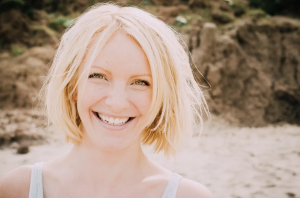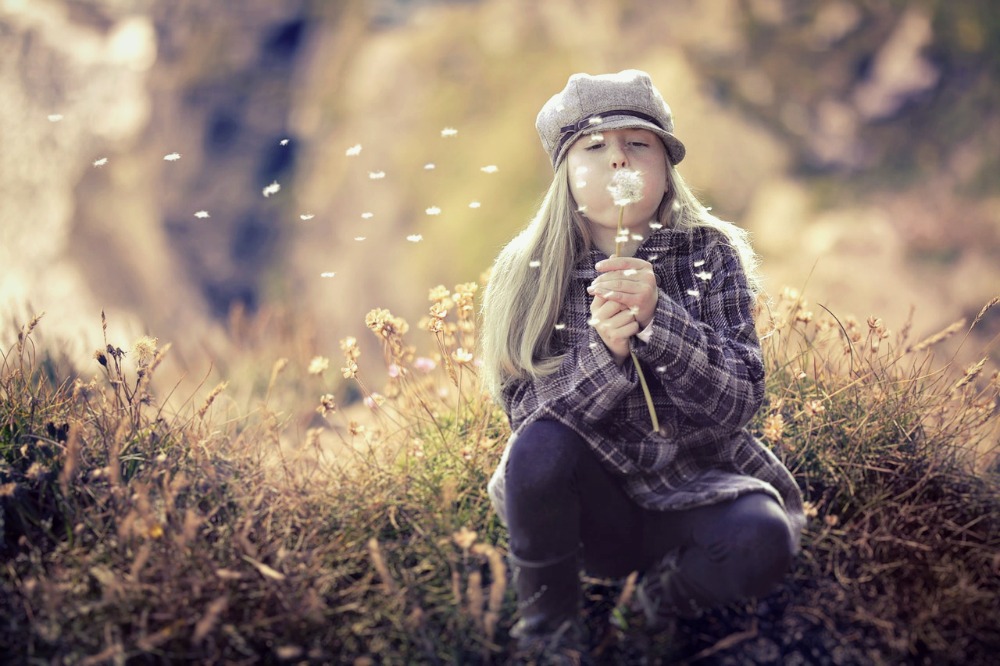Whether the term ‘highly sensitive’ is brand new to you or not, there’s no doubt about it: there is a growing number of sensitive children out there, and parenting and communicating with them, for most, can be a challenge.
Dr E Aron suggests that about 20% of the population are highly sensitive – people who notice and feel more of their environment and who have more sensitive nervous systems than those who are not sensitive. This may have been true some 10-20 years ago, but I’ve noticed an increase in children who are sensitive and an increase in parents who struggle to know what to do for the best – both in my personal life and my professional practice.
I grew up lonely and bewildered, never knowing where I fit in or why I was different. I had parents who desperately tried to toughen me up (to no avail) and was branded a “baby” by friends and was an easy target for bullies, all due to my emotional nature.
Fast forward 30 years, on the brink of an emotional (and possibly mental) breakdown, about to have a child; someone, somehow mentioned the term, ‘Highly Sensitive Person,’ and my life changed overnight.
Parenting my own sensitive child has been a learning curve, but I discovered the term ‘highly sensitive’ and found out that I was highly sensitive just after my daughter was born 6 years ago.
Awareness. Why it matters.
Just knowing I was highly sensitive (and not neurotic or ‘mental’ – terms I used to describe myself) helped me in ways I can’t even describe, If my daughter turned out to be sensitive, I wanted her to know as early as possible – so she didn’t grow up feeling alone like I did, I wanted to be able to explain and reassure her she was perfectly normal – the things I longed for as a child myself – but how could I do that?
I knew I had to feel my way, taking it step by step and deeply trusting myself and that what I was doing was okay. I knew I needed to learn more about the term ‘highly sensitive’ and what it really meant. I knew I had to empower myself with the knowledge, if I was going to empower her.
I started to understand that being highly sensitive isn’t a flaw or a disorder – it’s a personality trait. Around 20% of the population have this trait and the world needs us! I learned that people who are highly sensitive have a more sensitive nervous system, making stimulating environments tiring and often overwhelming. I learned that her (and my!) emotional outbursts were due to the fact that she was often over stimulated and her system craved ‘downtime’ – alone time and quiet. I learned that highly sensitive people can also be empathic and intuitive and can easily pick up on the feelings and emotions of other people and their environments. I learned that highly sensitive people can manage their overwhelm, through simple techniques, tools and having loving and understanding support system around them.
I’m proud to say my now 6 year old, sensitive and empathic daughter, is thriving in the modern world she finds herself in. She has a set of tools she can use to manage her strong emotions, she knows she is understood and she is given space to BE the Highly Sensitive child she is.
Most importantly she knows she is sensitive; I’ve explained it to her and it’s become part of our conversation.
What I learned may be surprising to some. Albert Einstein said, “Everything should be made as simple as possible, but not simpler.” So don’t let the simplicity of my approach put you off.
Parenting a Highly Sensitive child means unplugging from what society projects onto you, it means being human and displaying human emotions like empathy, kindness, patience and understanding, it means teaching your child self-love and self-respect and self-awareness. Simple, BEAUTIFUL acts, which we are all capable of.
We don’t need to toughen our children up!
Getting your child to understand their own sensitive nature
From an early age (or as soon as I understood about highly sensitive people & children), I started to open the discussion with my daughter about her being sensitive too. I mainly did this so she knew that I understood her, and to help equip her with the knowledge she needed when I wasn’t around; so she could start to self-manage and self-soothe her own high sensitivities.
Sharing what you know and feel comfortable with, will help your sensitive child feel less alone and more understood; which is vital for highly sensitive people.
If you validate the fact that they are different and sensitive, it makes it okay, it makes it acceptable, and it helps them feel more secure in themselves.
If children learn about high sensitivity from an earlier age, they can learn to self manage overwhelm and recognise themselves, when they are out of balance. It empowers them to know they own needs and be in charge of their self care.
“You’re getting upset easily because you’ve had a busy day and you’re sensitive, so it makes you feel funny and get tired easily. What we need to do is go home and have some calm and quiet time, maybe a bath or do your favourite hobby …”
Oh how I wish my Mum would have said this to me …
Really, a highly sensitive person, just wants someone to show they understand them.
They want reassurance from us, their parents, that they are completely normal for feeling the way they do inside – even though it’s different from what everyone else is like. If they are empathic or intuitive they will be super aware of this.
It’s important to explain that being sensitive means that they feel more and notice more, and that this can make them feel emotional, uneasy, or tired, and that sometimes they just need to do nothing.
They don’t know unless we tell them right?
Follow their lead. Ask a few questions and see where it takes you. Don’t be afraid of talking about feelings!
Never presume your child is too young to have what seems like a grown up conversation to you. Sensitive children are often far more emotionally intelligent than they let on. And if you want your child to be able to come to you with their problems when they are older, you have to open the gateway NOW – or as soon as you can, in an age appropriate way.
I have found that listening to their little problems and empathising with how they feel is crucial:
“One night my daughter, at bedtime, was a little more clingy than usual. I asked her why. She came out with some rambling about how she had been challenged to run a race with some children in her class, but she didn’t want to. The children continued to ask her to join in with this race but she didn’t want to (fear of failure/she never wanted to in the first place/she was now playing nicely with some friends etc). It would have been so easy to say, ‘Oh well, you should have just joined it, don’t be silly, just ignore them next time.’ But instead of sweeping this under the carpet in an attempt to toughen her up – I asked, ‘Okay, so how did that make you feel? Why do you feel sad (I picked up on the sadness in her voice) about that?’
Asking, ‘so how did that make you feel?’ is key to opening up that communication line, opening up that relationship, and helping them to feel understood.
It sounds so simple, right? It may sound a little scary too. It’s hard at first, for younger children to articulate and communicate how they feel. Shrugs of the shoulders can make you think they’re just making it up (and sometimes they will be, just to get that extra few mins of attention – they are after all children, and they need you more sometimes!), but try putting yourself in their shoes; how would their scenario make you feel?
I suggested that the boys pestering her might have made her feel a little uneasy and threatened and that I was sorry that they had been giving her a hard time. They probably had no idea it made her feel uneasy, because they can’t tell when people are afraid, like she can.
She then opened up and discussed little more about how she felt. I responded with empathy and gave her a little nudge, ‘It’s OK for you to feel that way, I would have felt like that too. Maybe next time you feel like that, how about trying to feel okay with saying no to people, Say, ‘No thank you, I don’t want to,’ in a loud and proud voice, knowing that’s okay.’ We ended up making it into a joke and laughing our socks off as she imagined her self telling these boys, “No thank you!” in a loud and proud voice.
It took less than five minutes. It wasn’t very taxing, but she was calmer, more confident and I instantly felt her clinginess dissolving. She went straight to bed and fell sleep – no issue.
Taking the time to communicate, even when there is 101 million other things to do, even at bedtime and even when you just cant muster up the strength to, will reap benefits. Asking, listening and delving into feelings is just where the magic is.
We’ve been gifted with emotionally intelligent, sensitive, empathic, caring, deep, thoughtful and amazing children – who need to know its okay to talk about feelings, and that it’s okay to feel how they do inside. So let’s encourage that. Let’s empower them and let’s create deep and meaningful connections with our children now. Don’t wait until they’re older.
You can learn more about Parenting a Highly Sensitive Child at www.kathrynpearson.co.uk/the-sensitive-subject.
You can take a simple quiz to find out if your child is Highly Sensitive at www.hsperson.com/test/highly-sensitive-child-test
About the Author: Kathryn Pearson
 Kathryn Pearson is a qualified Teen Yoga teacher, EFT practitioner and mentor to teens and young people, specialising in helping sensitive teens, children and parents of Highly Sensitive Children feel more empowered to love their sensitive nature and shine their Sensitive Superpower into the world!
Kathryn Pearson is a qualified Teen Yoga teacher, EFT practitioner and mentor to teens and young people, specialising in helping sensitive teens, children and parents of Highly Sensitive Children feel more empowered to love their sensitive nature and shine their Sensitive Superpower into the world!



Leave a Reply